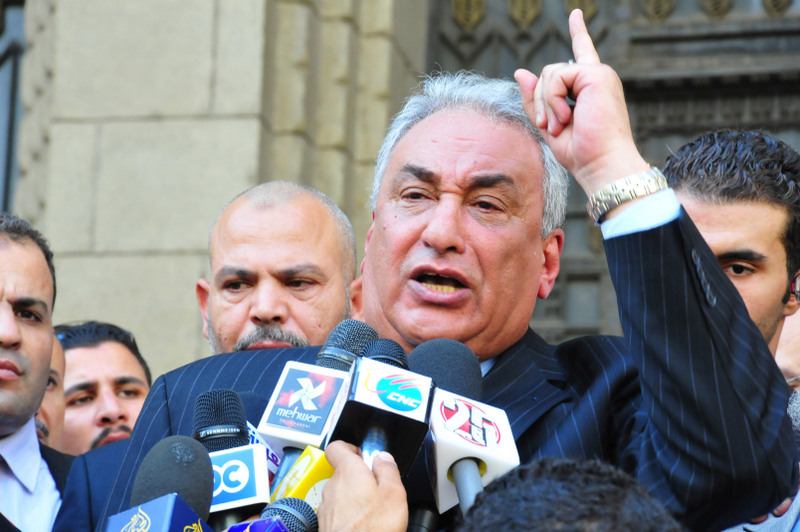WASHINGTON, DC: As we set out in the new year, many of us search for ways to bring deeper meaning to our lives. Sometimes that meaning can be found in the most unlikely places, places like the slums of Nairobi, Kenya where Jamii Bora, a microfinance program, offers savings and loans to people who have been beggars, prostitutes, thieves and gang members.
Along the way, Jamii Bora has learned that some of the best gifts aren’t given, but are earned through the grace of a fresh start or a second chance.
Just months after the post-election violence that engulfed Kenya two years ago, Jamii Bora received funds to rebuild one of the markets that had been destroyed by fire in the deadly rioting. Jamii Bora, which means “good families , decided they had to find the rioters and enlist them in rebuilding the market they had destroyed.
This was a seemingly preposterous proposition, even in the world of microfinance, which knows a thing or two about defying conventional wisdom. For most microfinance institutions, just finding the perpetrators of the destruction would have been a dangerous, if not impossible, task. Convincing them to rebuild what they had destroyed would seem to be an act of futility.
But believing in the impossible comes naturally to Jamii Bora whose staff are all former members who have used the program’s combination of savings and microloans to leave behind their lives as beggars, prostitutes, and thieves – lives that at one time were mired in extreme poverty. What they didn’t leave behind, however, were their deep roots in the community.
Jamii Bora’s staff was able to find the leader of the gang of 200 that had destroyed the market and talked with “the General , as he is known locally, about helping rebuild.
When the General first met Ingrid Munro, Jamii Bora’s founder, he told her he was upset with her staff when they first spoke with him because they didn’t seem to realize how dangerous he was. But with persistence they were able to convince him and his gang to aid in the reconstruction of the market, paying them to guard the materials at night and help rebuild during the day.
After the construction was completed the General and a third of the gang joined Jamii Bora. The others were still skeptical about microfinance, but they were intrigued as they watched the General build a legitimate business constructing cases that parents buy when sending their children to boarding schools.
The General told Munro that he hadn’t been to his home village in 13 years because his mother was so ashamed of him. But after his experience with Jamii Bora, he went home to visit and said his mother cried for three days because she was so happy about how he had turned his life around.
There are many visions for microfinance, including redemption. The dictionary defines redemption as restoring one’s honor and worth, setting one free. Isn’t that the highest vision of all when it comes to development: assisting people in restoring their honor and worth – setting them free from the bondage of poverty?
The General’s story of redemption isn’t an isolated case.
Ask Munro to describe other Jamii Bora members and she’s likely to tell you about Wilson Maina. Maina was a thief, one of the most wanted criminals in the Mathare Valley slum in Nairobi. After saving $10 (none of it from stealing, a condition set by Jamii Bora) he received a $20 loan. Today, he has four businesses and has convinced hundreds of youth to get out of crime. Now that’s a return on investment that the world desperately needs.
What are the ways in which each of us is held captive? Are we held captive by hopelessness about ending global poverty or making a difference? These stories of microfinance offer us the gift of redemption, the chance to be set free from apathy and make a fresh start in working for a more prosperous and peaceful world.
From 7 to 10 April 2010, Munro will welcome 2,000 delegates to Nairobi for the Africa-Middle East Regional Microcredit Summit in her role as Chair of the Summit’s National Organizing Committee. At that summit, delegates will use these examples and others to discuss how microfinance can be used as an effective tool for conflict prevention. Some session topics include: Using Microfinance as a Tool for Building Peace and Microfinance in Post-Conflict and Post-Disaster Situations.
This revolutionary tool is also area of common ground between the Muslim world and the West, both of which are grappling with the sometimes-extremist consequences of poverty. During the summit’s opening ceremony, delegates will hear Grameen Bank founder Muhammad Yunus who is Muslim and a Nobel Peace Prize Laureate. Let’s hope that we are all able to bring the gift of redemption into our lives and into the world as this new year begins.
Sam Daley-Harris is Founder of the Microcredit Summit Campaign (www.microcreditsummit.org), which seeks to reach 175 million of the world’s poorest families with microloans, and RESULTS (www.results.org), which seeks to create the political will to end poverty. This article is distributed by the Common Ground News Service (CGNews) in a slightly modified version with permission from the author. The original text can be found at www.microfinancefocus.com.
